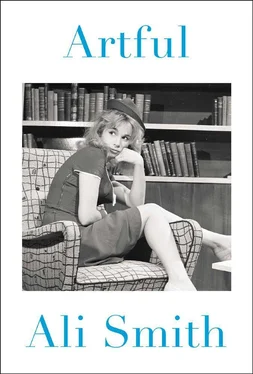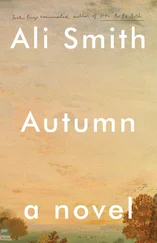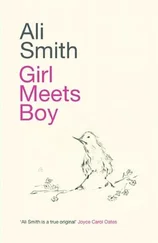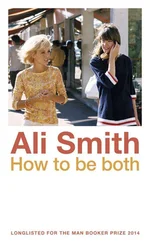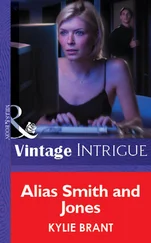But if anything was imperfect about you it was my own doing. As you’d always said, the imagination can do anything. If only mine was half as original as yours had been I’d have been able to imagine you odorless, sitting up at the table with me like that good talking dog or hovering starlike above me wherever I went, through the supermarkets and train stations of life. But no, I couldn’t even imagine you a good permanent nose. I didn’t even have the imaginative grace to be able to do that. And there seemed nothing I could do to change it: though I tried to imagine it differently it always ended up the same every time you came home, through the door, up the stairs and straight into the study to pull out more of your hair over some old computer printouts.
At the moment the one that was preoccupying you was the one called On Form.
I wasn’t really sure, to be honest, what form meant. I asked Sandra, at work. It’s a thing you fill in, she said.
Ha, I said, because little did she know that right at that moment I was sitting there experimenting with some stiff paper, curving it into a cone shape for filling the place your nose had been, I was thinking that paper was better than wood, not too heavy and very easily replaceable and re-shape-able. I had noticed that you were having trouble, with no place on your face now to balance your glasses.
Yeah but Sandra, I said. What’s the form for if a dead person comes back from the dead and hangs out with you? What would you do if that happened to you? Ha ha, Sandra said, who’s been watching too many horror movies. Then she looked concerned and said: Are you all right sweetheart? No, I’m fine, I said. Well, we all thought you were on better form than you’d been, she said, we’re all glad about that, you’ve had a rough time. But you’re looking a bit pale these days again, I was wondering if things were okay at home. No, but really, I said, what if someone, what would you do with them? Sandra looked at me then looked hard at her computer screen. If it happened to me, she said not looking up from the screen, I’d tell someone. I am, I’m telling you, I said. I mean, I’d go and see a doctor, she said. That’s what I’d do if I were you.
She sent me out to check ten sycamores at the backs of some houses in Romsey to see whether there was a root problem when it came to the sewers (the sycamores were fine, though a leylandii clump was too close to the houses by far) and by the time I got back to work she’d sent me an email saying I’d been assigned next week off, on half-pay — in October, which is one of our busiest times.
I looked up hotels in Brighton. We’d always liked going to Brighton. I booked one we’d stayed in before. I walked home. You were home already; I could tell.
I’ve booked a holiday, I said. Want to come? We need some fresh air, you and me. But if you don’t want to, that’s okay. If you’d rather stay here with your work, I mean.
You didn’t hear me. You were busy working. I watched hair waft down lightly through the air in the bright of the anglepoise.
Two days later, two days into the holiday, two days of waking at 5 am and knowing there was nothing to have to get up for, two days away from the work structure hanging around a hotel room by myself with you, and I was losing the will to live.
On our first day I’d wandered round the shops near the hotel. When I got back I found you’d clearly been right behind me and had lifted a couple of books from the charity bookshop whose stock I’d had a passing look at. I began to worry. You were a figment of my imagination. That meant I must have taken those things.
Did you just take those? Without paying? I said.
You held up one of the hotel coffee mugs. Then you let it drop. It hit a bit of floor that wasn’t carpeted and broke into splintery pieces.
You can’t do that kind of thing, I said, not here.
You picked up one of the pieces and examined it as closely as you’d examined the complete mug a moment ago.
Beautiful, you said.
You can’t just break things, I said. It’s not done. And you can’t just take things. It’s okay to take things from home . But not from shops.
You opened one of the books, a small old kind of book with a bright yellow cover, drawings of birds all over it. It was called Birds at Sight: How to Know Them.
Lesser spotted woodpecker. The nest is a hole in a tree, you said. Jay. The nest of sticks and grass is in a bush or tree. Magpie. The domed nest with entrance at the side is built of sticks and mud in a tree or bush. Linnet. The nest of rootlets, grass, wool and hair is in a gorse bush or similar place. Chaffinch. The mossy nest with soft lining is one of the prettiest, and may be in a bush, hedge or tree.
Actually it’s not really all right to keep taking things from home either, I said.
The wonderful bottle-shaped mud nest is under the eaves of a building, you read. All the mud is brought in the birds’ bills. The nest is in a crevice in a wall or tree or on a beam in the roof of a building.
I don’t mind so much the pens and stuff, I said. But there are some things I need you not to take.
The cock sparrow, courting, will display his throat and droop his wings, you said. He brings and tears yellow flowers. The male whitethroat, courting, will bring the female a piece of grass.
The car key, I said. And my bank cards. The car key cost £260 to replace. I can’t drive the car without it. And it’s very annoying and inconvenient to have to keep changing my bank cards.
Hopping birds, such as the sparrows, blackbirds, thrushes and other finches leave their footprints in pairs, side by side. Walking or running birds, like the wagtail and the starling, leave a line of alternate impressions, similar in form to human tracks.
Well, obviously, I said.
You went on reading out stuff at me about the differences between footprints left by ducks and gulls.
I’m going out, I said. Don’t come too.
I went for a walk at the shore. It was nice to be by myself. Then I realized I was looking at the tracks birds had left, watching for what gulls’ tracks looked like, and I got annoyed at myself and at you. Then I felt guilty for enjoying being by myself.
It started to rain. I ducked into one of the shop spaces under the walkway. It was an amusement arcade full of old machines, the kind from the first few decades of the last century. I gave the man in the booth a pound and he gave me ten old pennies in exchange; then I halfheartedly wound my way two-thirds through a lady lifting her skirts in a What the Butler Saw machine, showing her thighs higher and higher in a flicketing wad of old photographs whose paper edges, as they shifted from still to motion to still again, were so softened and dirty, so like old worthless currency, that I felt sorry for the white-thighed lady, then for all the people who’d ever put their eyes to this eyeslot and watched her, then finally for myself, which I continued to feel, wandering round this arcade. Until, that is, I found the Super Steer-a-Ball.
The Super Steer-a-Ball was a big square machine painted bright red with a sloping metal countryside painted onto it and a steering wheel stuck on the front. I put a penny in and a steel ball about the size of a childhood gobstopper appeared through a hole at the top. The ball had to be guided down a maze of sloping paths between panels enameled with summer trees, avoiding dead ends and hidden slopes, until it reached two holes and disappeared into the blackness down one of them. The holes were rusty, very roughly cut in the metal. One hole had the word HOME written next to it in red. The other had the word LOST.
I put all the cash I had and all the change in my pockets into this machine, because every time I put the penny in, no matter what I did, the ball went down the hole marked LOST. They were just holes, the holes, cut in the metal. They were exactly the same as each other. But one was called HOME and one was called LOST, so I kept on putting my penny in and trying to get the ball into the one marked HOME. It was terrible, the fact that it kept going down the one marked LOST.
Читать дальше
